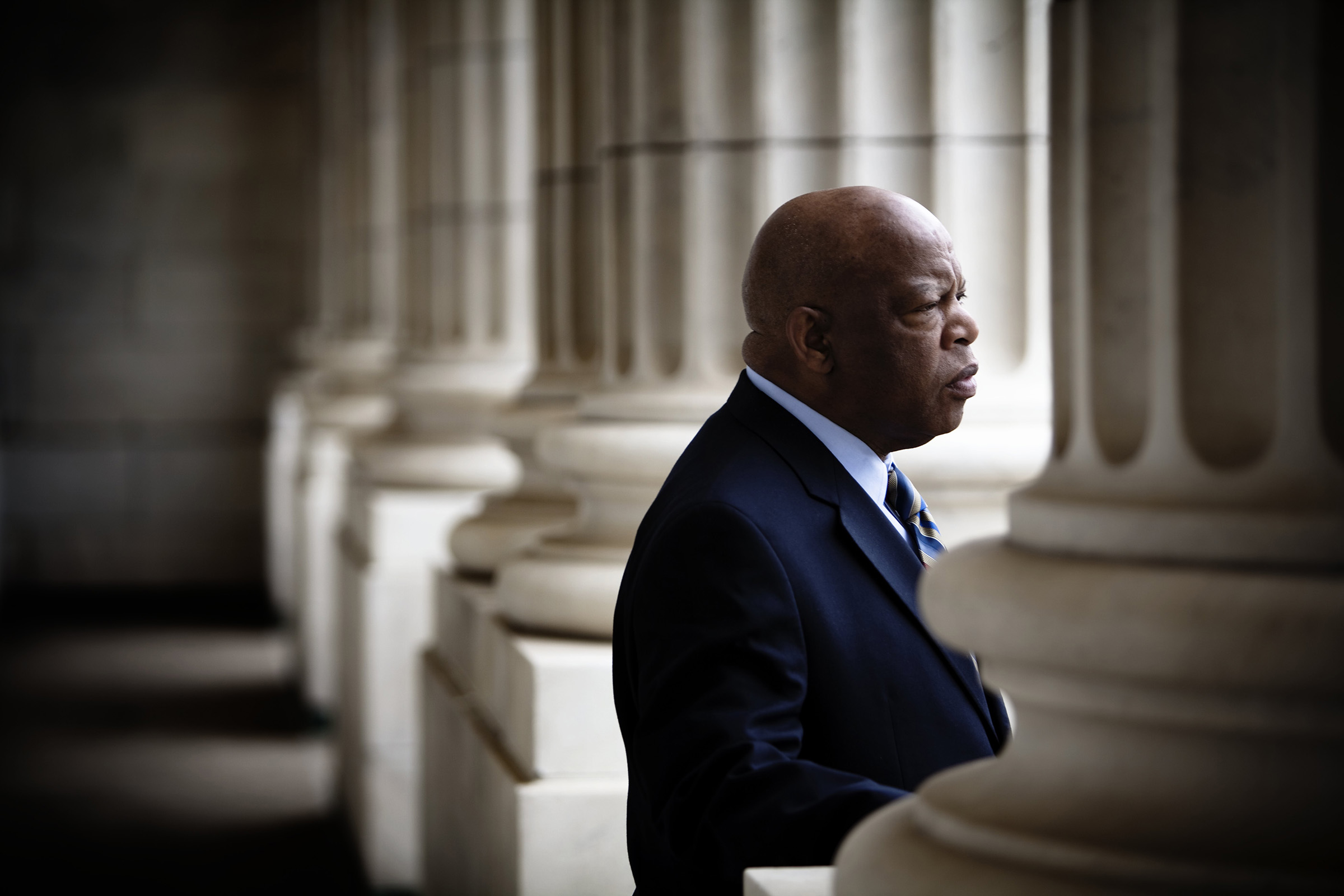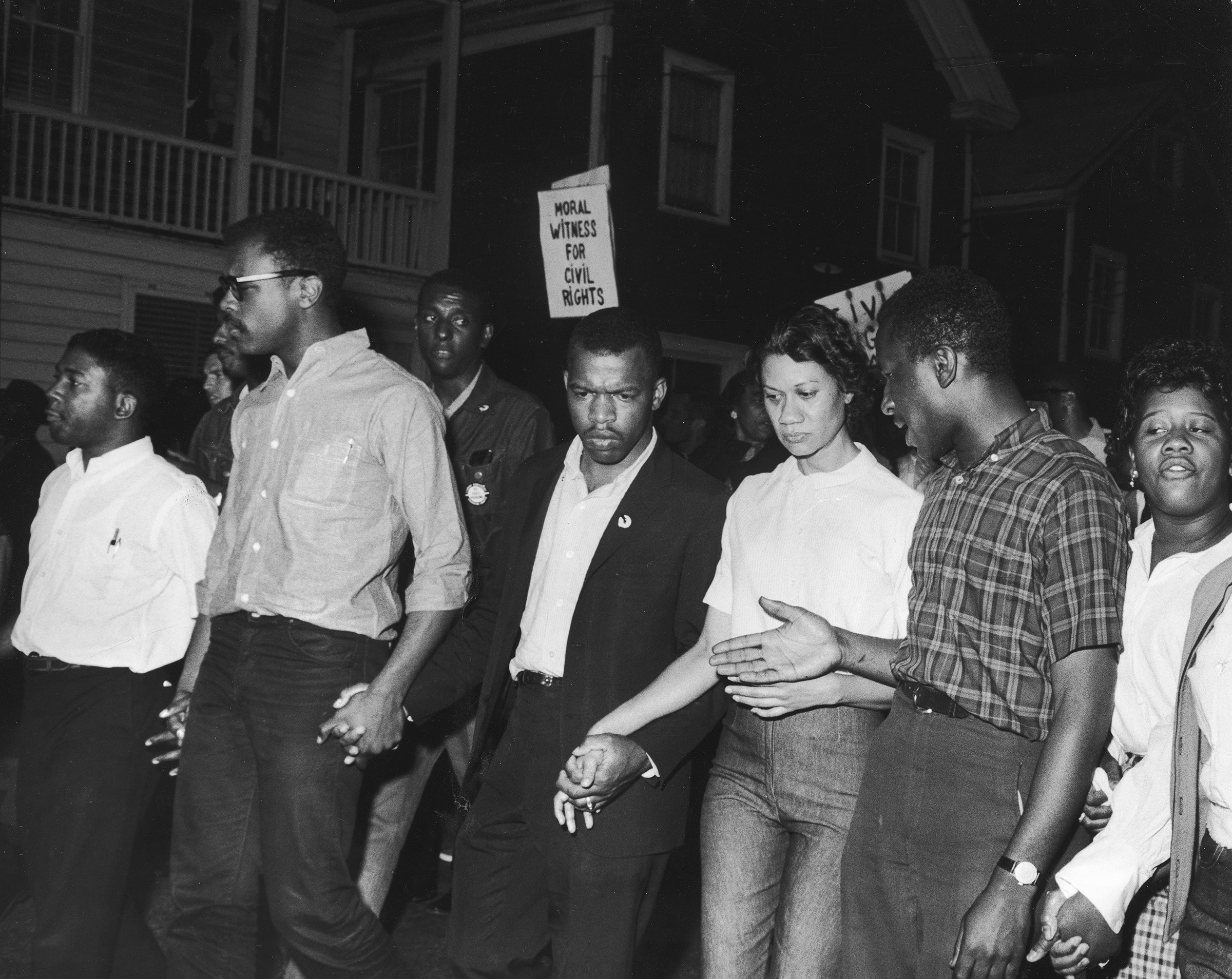
John Lewis served in Congress since 1987, representing Georgia in the House of Representatives. But his constituents were far from all the longtime legislator, who died on Friday at age 80, represented.
Lewis was a witness to, participant in and survivor of some of the most pivotal moments of the American civil rights movement: he gave a speech at the 1963 March on Washington; he marched across the Edmund Pettus Bridge in Selma, Ala., in 1965; he took part in more recent acts of resistance. In a movement in which so many great lights were extinguished early, his longevity left him to serve as a de facto spokesman for what he saw.
But it’s not by chance that Lewis’ name is tied so closely to the nation’s still-visceral memories of those moments. Throughout his life, the Congressman spoke often about his purposeful quest to tell and retell the story of what he had been through, so that nobody could forget. He turned his experiences into bestselling books and share-worthy speeches and even a catchphrase — and he did so with intention.
In 2017, Lewis spoke to TIME for the magazine’s 10 Questions feature. In this previously unpublished excerpt from the conversation, Lewis explained why he kept telling his story, even though it wasn’t easy for him:
You’ve talked about the importance of telling the story [of the civil rights movement] over and over again, and how it affects the people who hear it. But how does telling that story again and again affect you?
Yes, when I tell the story, and I tell it over and over again, even for hundreds and thousands of students, to little children and adults who come to the office or when I’m out on the road speaking, it affects me — and sometimes it brings me to tears. But I think it’s important to tell it. Maybe it will help educate or inspire other people so they too can do something, they too can make a contribution.
I went up to Rochester, N.Y., back in October, with a colleague of mine, Louise Slaughter, who represents Rochester. [Slaughter died in March of 2018.] And I went to a church that Frederick Douglass had attended, an African American Methodist church, and I went to a house called the Motherhouse. Two of the nuns that took care of us at the hospital in Selma when we were beaten on March 7, 1965, they retired there. These two nuns are feeble, up in age, but they recognized me and they called me John and I called them sisters. There were many other nuns sitting around and they started crying and I cried with them and hugged them, and they showed me this stained glass that was taken from the chapel of the hospital in Selma, which is now closed, and they’d brought it to Rochester. And we stood there and did a song and a hymn.
It’s uplifting and it’s powerful to me to tell the story and to respond to people asking questions. It makes us all stronger and more determined.

I’ve heard that one of the catalysts that inspired you to run for office was the run of terrible things that happened at the end of the 1960s, the assassinations of Robert Kennedy and Martin Luther King Jr. What’s the key to responding to terrible things by taking action rather than just collapsing?
You have to pull up on the best in the human spirit. You just say “I’m not going to be down.” You have what I call an executive session with yourself. You could say, “Listen self, listen John Lewis, you’re just not going to get lost in a sea of despair. You’re not going to be down. You’re going to get up.”
The assassinations of Dr. Martin Luther King Jr. and Robert Kennedy was the saddest time in my life. I admired both Martin Luther King Jr. and Robert Kennedy. I admired those two men. Martin Luther King Jr. had taught me how to stand up, to speak up and speak out, and how to get involved. When I first met him, he called me the Boy from Troy, and up until the time of his death, he still referred to me as the Boy from Troy, because I grew up outside of Troy, Alabama. And I met Robert Kennedy for the first time in 1963, when I was 23 years old, before the March on Washington. And he was so inspiring, so uplifting. In my Washington office, I have a picture with him when he was Attorney General, from a campaign poster from 1968. These two young leaders, I thought, represented the very best of America. And when Dr. King was assassinated, I was with Bobby Kennedy when we heard. And as a matter of fact, it was Bobby Kennedy that announced at this campaign rally at Indianapolis, Indiana, to the crowd. As I was working on this campaign, trying to get people to come out to the rally, he said, we have some bad news tonight, Martin Luther King Jr. was assassinated in Memphis, Tennessee. I heard that he’d been shot but we didn’t know his condition.
And I really felt when the two of them died that something died in America. Something died in all of us. And sometimes we never recover from situations like these. I became convinced in myself that I had to do something, I had to pick up where Dr. King left off and Bobby Kennedy left off.
One of the civil rights-era experiences that Lewis often recounted, as he told what he had been through, was the experience of hearing Martin Luther King Jr. speak on the radio when Lewis was a teenager. Lewis felt, he would say, that King was speaking directly to him, telling him to get involved — and that the “spirit of history” was moving through him, too. The spirit of history told him that the moment was right to stand up, and that the time had come to take his place in the story of the world.
Now, as America remembers a civil rights leader who protected and advanced that legacy in the decades after King’s assassination, it seems safe to say that the spirit was right.
More Must-Reads from TIME
- Cybersecurity Experts Are Sounding the Alarm on DOGE
- Meet the 2025 Women of the Year
- The Harsh Truth About Disability Inclusion
- Why Do More Young Adults Have Cancer?
- Colman Domingo Leads With Radical Love
- How to Get Better at Doing Things Alone
- Michelle Zauner Stares Down the Darkness
Write to Lily Rothman at lily.rothman@time.com